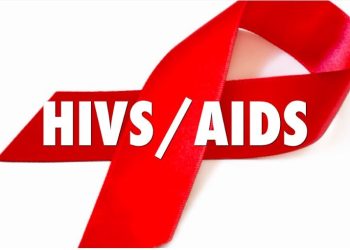The Ghana AIDS Commission (GAC) has reported that 50 people are infected with HIV each day, while 34 individuals die from AIDS-related causes daily.
Dr. Kyeremeh Atuahene, Director-General of the GAC, stated that these new infections and AIDS-related deaths are preventable, emphasizing the importance of early diagnosis and consistent treatment for persons living with HIV (PLHIV).
He shared these statistics during a durbar in Accra to commemorate the 2024 World AIDS Day. The global theme for this year’s observance was “Take the Right Path,” while the local theme focused on “Ending AIDS Together: Stepping Up HIV Prevention Efforts.”

World AIDS Day is an annual occasion to reflect on the impact of HIV worldwide, assess progress in controlling the epidemic, acknowledge successes, identify challenges in service delivery, and renew commitment to ending AIDS by 2030.
Dr. Atuahene highlighted that the country is facing significant costs due to the number of PLHIV who are either undiagnosed or not receiving Antiretroviral Treatment (ART), with these issues leading to both new infections and preventable deaths.
Additionally, the loss of productivity due to HIV-related ill-health costs the country, with an estimated five days of productivity lost per month per affected individual.
“This loss to Ghana’s economy is better appreciated when we aggregate the average productivity lost to HIV-related illnesses with the estimated 183,000 people living with HIV and are not on ART.
“Indeed, it makes economic sense to know more than ever to invest in HIV, saying the business-as-usual attitude is not the best.
We must see HIV prevention, treatment and care services as an investment and work towards a country in which a healthy population is recognized as propellers for economic growth and sustainable development and everyone enjoys the health they deserve,” Dr Atuahene stated.
Ms Elsie Ayeh, the President of Nap+ Ghana, in remarks made on her behalf at the event, said ending AIDS required collective efforts and urged all to work together to strengthen the advocacy.
Let us have the conviction that ending AIDS is possible, she added.
Mr Hector Sucilla Perez, UNAIDS Country Director, said 1.3 million people worldwide acquired HIV, a figure three times higher than the global target of 370,000 new infections by 2025.
Despite advances in treatment, 9.3 million people living with HIV still lack access to life-saving ART, and continue to face barriers such as stigma, discrimination, and punitive laws, he stated.
Mr Perez said to change the course, there was a need to focus on protecting human rights for all, adding that ending AIDS required removing barriers that prevent people from accessing care, including harmful laws and practices while fostering inclusive community-led responses.
He called for the need to invest in girls’ education and link it to public health and human rights to all, which was a critical component of HIV prevention.
In attendance were the World Health Organization Country Representative, Deputy Chief of Mission, US Embassy, traditional leaders, and the Trade Union Congress Secretary General, among others.
The event also featured an exhibition, community engagement, distribution of HIV materials, condoms, medical screening, HIV testing, and BP screening, among others.
























































![[FREE FREE MONEY] Predict and Win a Guaranteed GH¢200 From Us EVERY WEEK](https://wordpress.ghanatalksradio.com/wp-content/uploads/2022/02/Predict-and-Win-Final-09-03-2021-218x150.jpg)
![[Predict & Win – 8th/Oct.] WIN A Guaranteed ¢200 From Us This Week](https://wordpress.ghanatalksradio.com/wp-content/uploads/2021/10/maxresdefault-16-218x150.jpg)
![[Predict & Win – 2nd] WIN A Guaranteed ¢200 From Us This Week](https://wordpress.ghanatalksradio.com/wp-content/uploads/2021/09/maxresdefault-50-218x150.jpg)
![[Predict & Win – 25th] WIN A Guaranteed ¢200 From Us This Week](https://wordpress.ghanatalksradio.com/wp-content/uploads/2021/09/maxresdefault-36-218x150.jpg)
![[Predict & Win – 18th] WIN A Guaranteed ¢200 From Us This Week](https://wordpress.ghanatalksradio.com/wp-content/uploads/2021/09/maxresdefault-23-218x150.jpg)






![[National cathedral] See full list of churches that have contributed since 2018](https://wordpress.ghanatalksradio.com/wp-content/uploads/2020/09/Ghana-National-Cathedral-GhanaTalksRadio-100x70.jpg)



